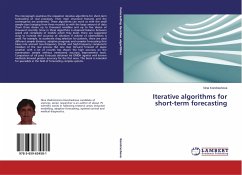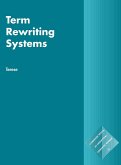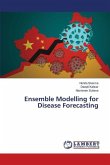The monograph examines the relaxation iterative algorithms for short-term forecasting of real processes. Their main structural features and the convergence are presented. These algorithms can work as with the small sample sizes (ranging from three records) so with the large amount of data (from three dozen up to thousand variables and up to five dozen of thousand records). Since in these algorithms is observed balance between speed and complexity of models which they build, there are suggested ways to increase the accuracy of solutions if volume of observations is small. For example, to accelerate drag selection for patients, there are used different sample divisions, adaptive prognosis and complex forecasting that takes into account low-frequency (trend) and high-frequency component (residue) of the real process. But one step forward forecast of space weather with a lot of records has shown the high accuracy on the examination sample without mentioned accuracy improvement tools.Comparison of oil price forecasts obtained via GMDH against well known methods showed greater accuracy for the first ones. This book is intended for specialists in the field of forecasting complex systems.
Bitte wählen Sie Ihr Anliegen aus.
Rechnungen
Retourenschein anfordern
Bestellstatus
Storno








